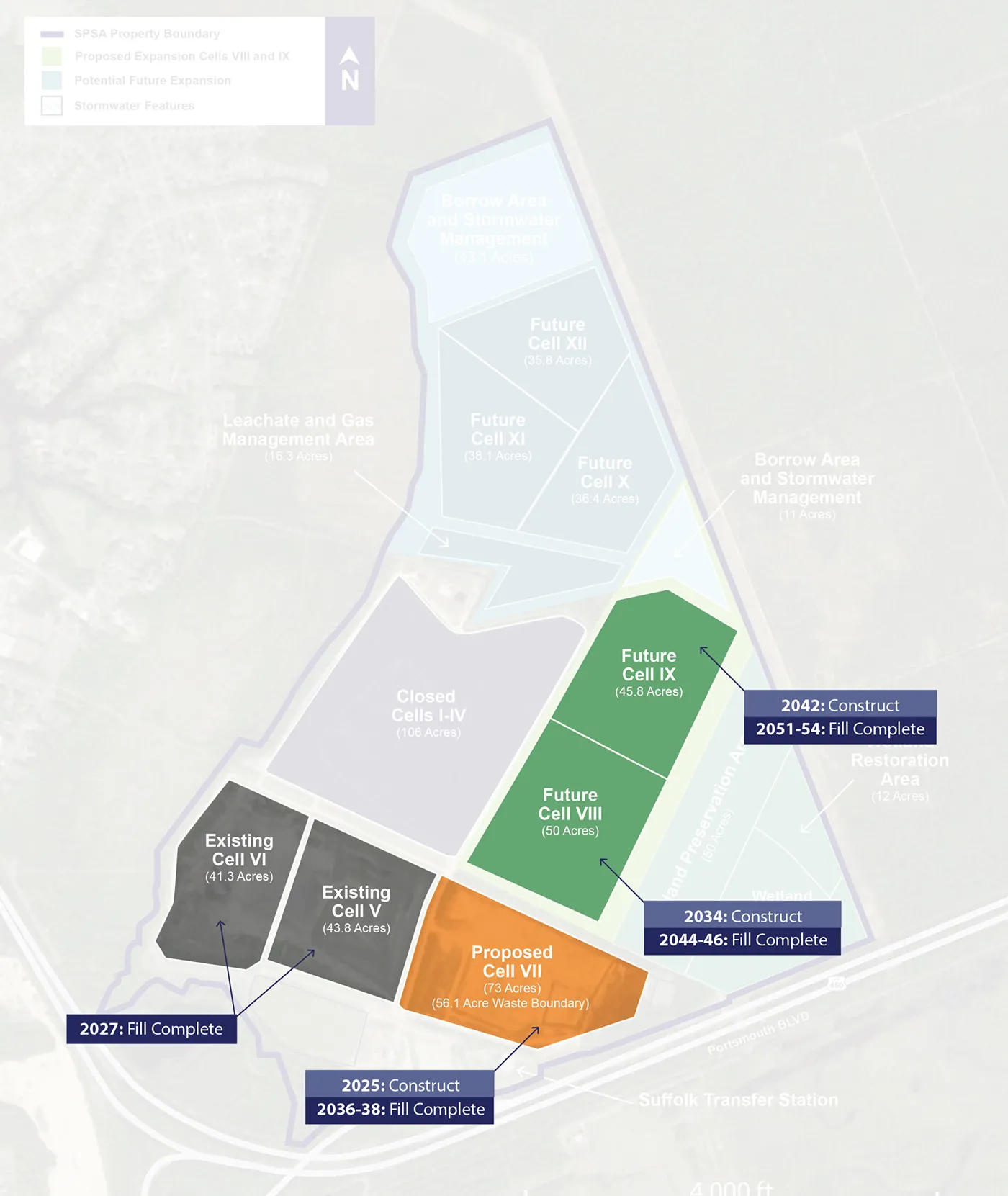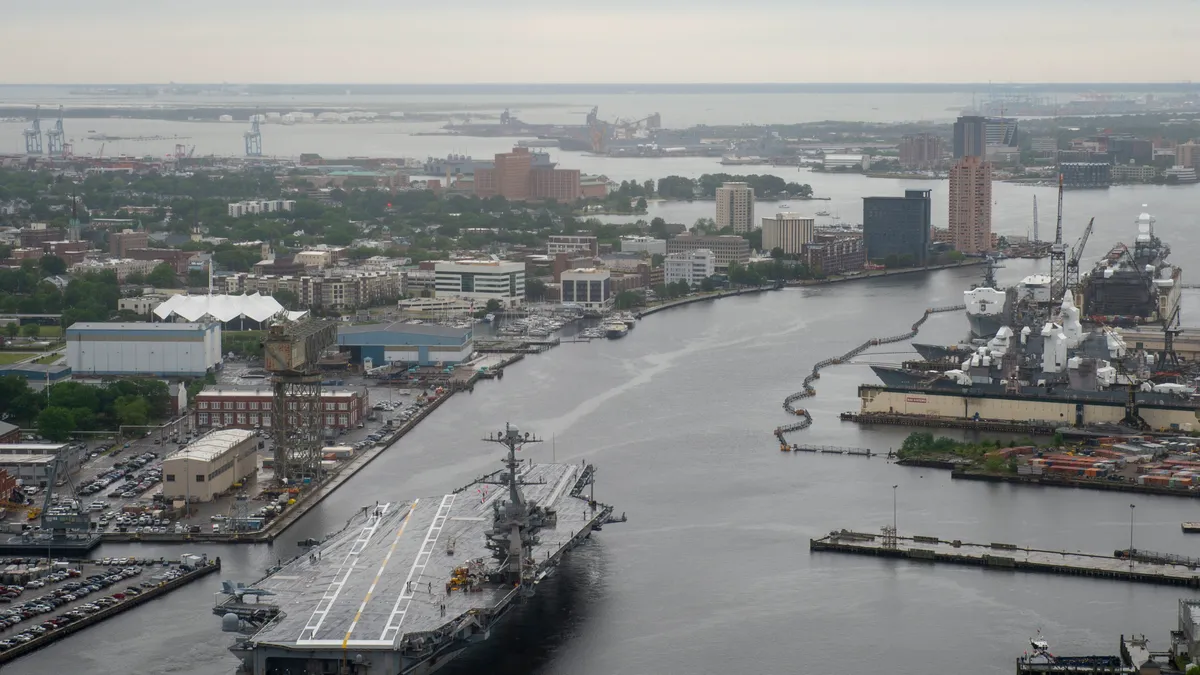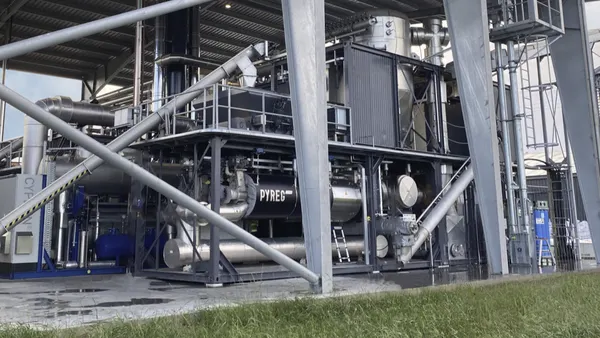Dive Brief:
- A refuse-derived fuel plant in Portsmouth, Virginia, operated by a subsidiary of WIN Waste Innovations shut down on Sunday. The plant's closure means the Southeastern Public Service Authority, which serves several Virginia counties, now must send more of the waste it handles to landfill.
- The facility incinerated the fuel to create steam and electricity. It was built by the U.S. Navy in the 1980s, but it was replaced by a natural gas-powered plant and hampered by a fire in recent years.
- SPSA is looking to replace the lost processing capacity with alternatives to the Regional Landfill it operates in Suffolk, where current cells are expected to reach capacity by 2026. The authority is adding another cell to the landfill and released a request for proposals for alternative waste disposal options, which closed on May 1.
Dive Insight:
With the notable exception of Florida, most states have been moving away from WTE facilities for disposal. Many of those closing are decades old and are threatened by the end of offtake agreements or new, more stringent environmental regulations.
In Long Beach, California, a mass burn combustion facility run by Covanta stopped accepting MSW on Jan. 31 and shut down soon after. Covanta has also threatened to close another California facility in Stanislaus County due to a state law that affected volumes and revenue generation for WTE facilities in the state.
Wheelabrator Technologies, which was a subsidiary of WM before it became WIN Waste under Macquarie’s ownership, acquired the facility from SPSA in 2010 for $150 million. The authority finalized its most recent service agreement with Wheelabrator in 2018.
SPSA's contract with WIN Waste originally had three more years of operation, but the Navy shifting away from its steam energy contract made the facility uneconomical. SPSA will receive a $5 million payout due to the early contract termination, WHRO reported.
WIN Waste now runs 13 WTE facilities following the closure of the Portsmouth plant. In a statement, the company blamed the “unique situation” of the Navy terminating its contract as the reason for the facility’s closure.
“While we have been working alongside the local authorities and the Navy for nearly two years to support this transition, the situation does reaffirm the important role we play in local economies and as an essential waste solution for the communities we continue to serve,” Mary Urban, senior director of communications and community for WIN Waste, said in an emailed statement.
SPSA runs nine transfer stations and sent 83% of the waste running through them to the Portsmouth facility. The authority handled about 761,000 tons of solid waste in its fiscal year that ended on June 30, 2023, according to the RFP.

The authority also runs the Regional Landfill in Suffolk, where it is pursuing multiple expansion opportunities. The landfill includes about 833 acres of land, with 376 acres permitted for current or potential use. It accepts a variety of materials, including MSW, C&D debris and ash from the incinerator.
With the facility closed, SPSA estimates the landfill would need to accept more than 400,000 tons of waste annually if it becomes the sole disposal option. SPSA expects its fifth and sixth cells to run out of capacity as soon as 2026, and is actively constructing a seventh cell which extends the facility across 73 additional acres. That cell is expected to be full by about 2036.
SPSA wants to further extend the active landfill by 129 acres through the addition of an eighth and ninth cell, which would cover about 96 acres. The permitting process is ongoing for that plan.
The authority’s alternative waste disposal committee is scheduled to deliberate over proposals received through the RFP on July 15. The Portsmouth facility is slated to be demolished and SPSA plans to add a transfer station on a portion of the property, according to WHRO.










